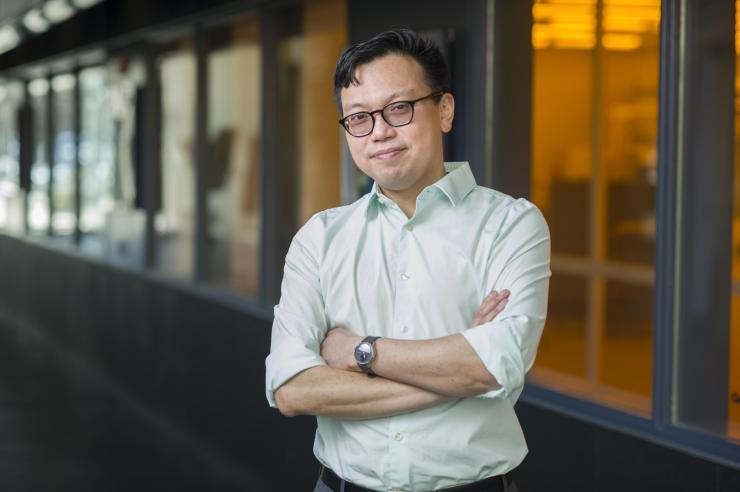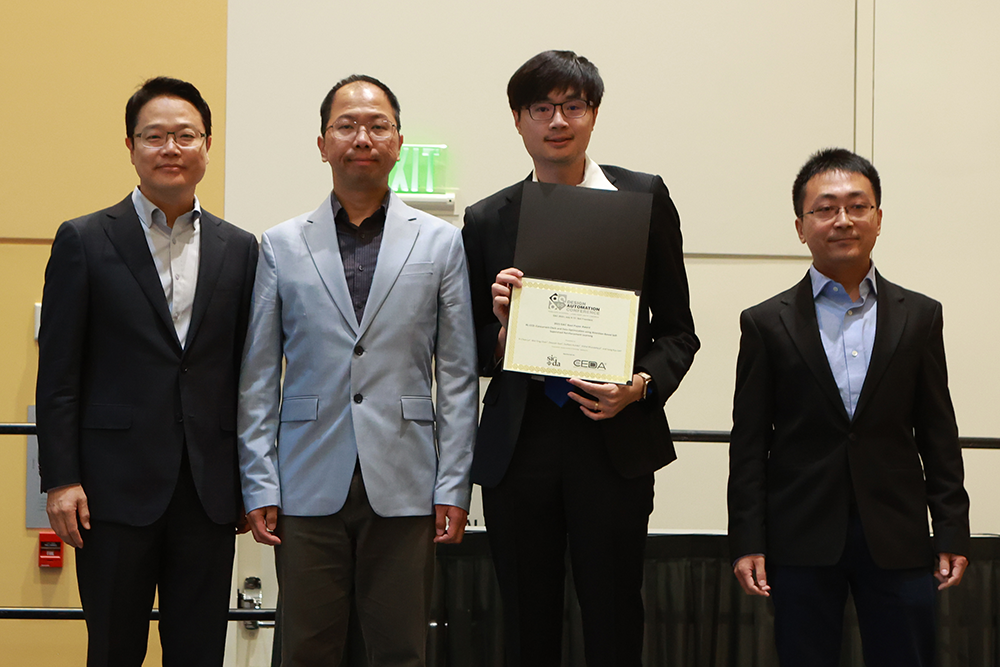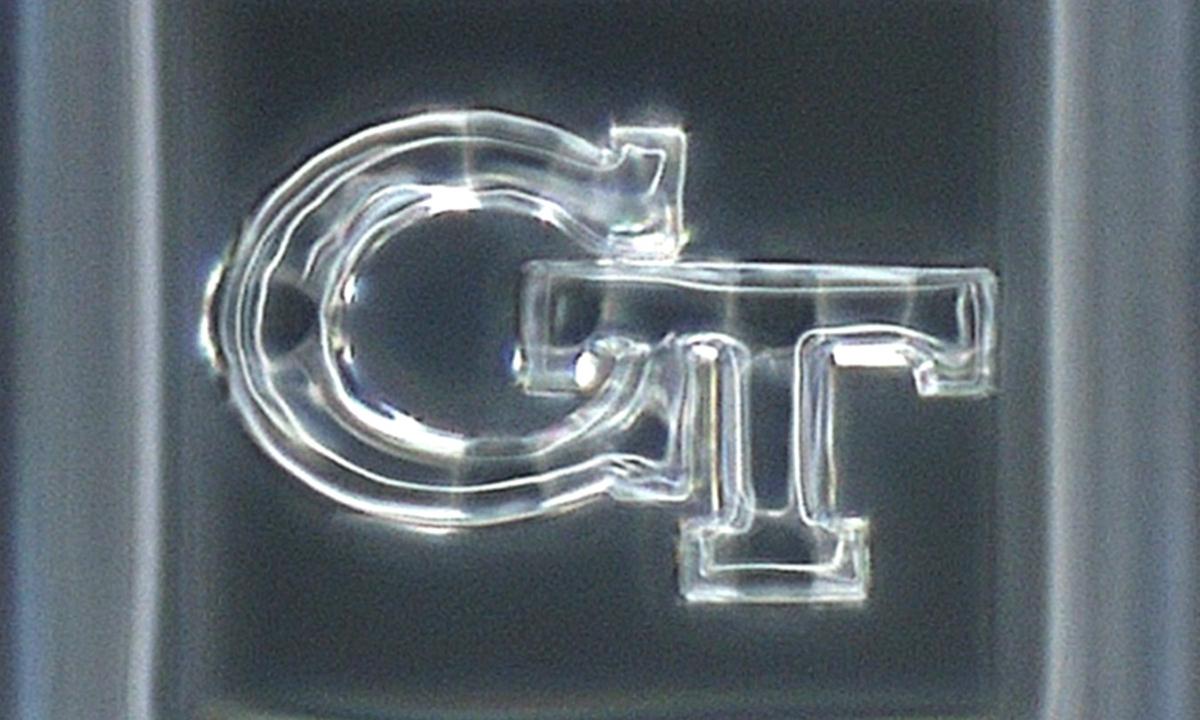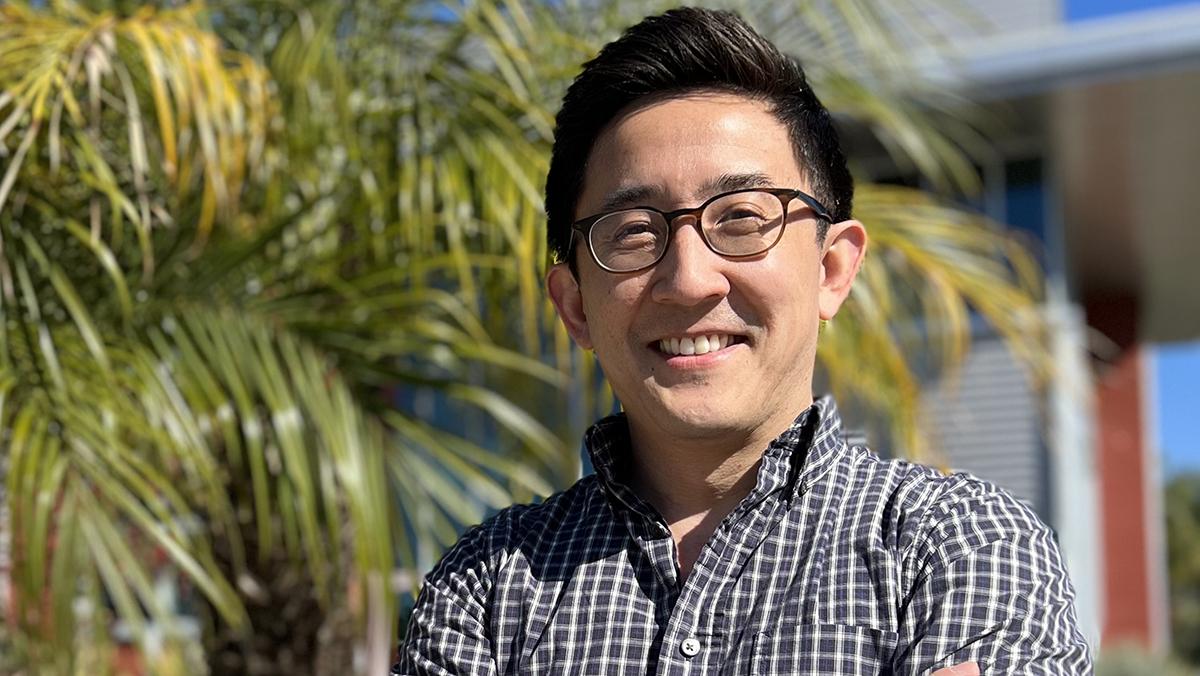GEDC Distinguished Lecture Series | Antenna Evolution: From Hertz’s Experiments to Modern Nonlinear Techniques
Abstract: Antennas, with a history spanning more than 130 years, continue to be a fascinating area of study that is profoundly ingrained in our daily lives. This presentation will examine their enduring relevance and the challenges that they present. Our journey commences with the radiation process and Hertz experiments continued by the fundamentals of electrically small antennas (ESAs), which are limited in bandwidth and efficacy due to their small size. We will investigate the unique characteristics of ESAs, such as their stored energy and impedance characteristics.
IEN Microfabrication Short Course
Thursday, Nov. 30 - Friday, Dec. 1, 2023
The Institute for Electronics and Nanotechnology (IEN) at Georgia Tech will offer a short course on microfabrication on Thursday, Nov. 30 - Friday, Dec. 1, 2023. This intensive two-day short course combines classroom lectures and laboratory based hands-on fabrication in the IEN cleanroom. The goal of the course is to impart a basic understanding of the science and technology of microfabrication processes as used in academia and industry.
International Conference on Aluminum Alloys
ICAA is the renowned series of International Conferences on Aluminum Alloys. It provides a forum for scientists and experts from universities and industrial and other research laboratories to present and discuss new developments in the science and technology of aluminum alloys, on their production, processing and physical metallurgy of semis and their broad applications.
Wilbur Lam Elected to National Academy of Medicine
Oct 12, 2023 —

The list of titles following Wilbur Lam’s name is long, given his appointments at Georgia Tech, Emory University, and Children’s Healthcare of Atlanta. Now he has a new one: member of the National Academy of Medicine (NAM).
Lam is one of 100 newly elected members of the Academy for 2023, an honor reserved for people who’ve made major contributions to medicine, healthcare, and public health. He joins a roster of just 2,400 or so individuals. Membership is considered one of the highest recognitions in health and medicine.
“This honor is extremely humbling because it’s given to me as one person. But it really reflects the team effort that’s surrounded me all these years,” said Lam, W. Paul Bowers Research Chair in the Wallace H. Coulter Department of Biomedical Engineering at Georgia Tech and Emory University.
“If you look at all the work that they’re recognizing me for, it starts with my laboratory, then goes beyond — into the centers that we’ve developed related to diagnostic technologies, and then, all the work that we’ve done for the National Institutes of Health during the pandemic.”
New NAM members are nominated and elected by current members, and they’re expected to contribute to National Academies activities providing independent analysis and advice to help the nation tackle complex problems.
Lam, who is a pediatric hematologist/oncologist at Children’s Healthcare of Atlanta in addition to a researcher, was cited “for outstanding contributions in point-of-care, home-based, and/or smartphone-enabled diagnostics that are changing the management of pediatric and hematologic diseases as well as development of microsystems technologies as research-enabling platforms to investigate blood biophysics.”
Read the full article on the College of Engineering website
Joshua Stewart (jstewart@gatech.edu)
Micro-Physiological Systems Seminar Series
Featuring Hyun Jee Lee (Lu Lab) Graduate Student, School of Chemical and Biomolecular Engineering
Meet and greet!
Micro-Physiological Systems Society Meet other like-minded GT students interested in micro-physiological systems, and find out how you can get more involved with the seminar series!
(Lunch starts at 12:50 p.m.)
RSVP by Oct 17 (Tuesday) at: forms.office.com/r/UvNcmZXr9c
Optically active solid-state spins in photonic platforms for quantum science and technology
Abstract: In recent years, quantum systems have emerged as key ingredients for developing future technologies toward efficient computing, communication, and sensing. In this talk, I will focus on a specific class of promising quantum systems, optically active spins in the solid-state such as quantum dots and color centers. I will first present the quantum properties of optically active spin systems and discuss methods inspired by nuclear magnetic resonance for improving these properties toward the development of novel sensors.
Reinforcement Learning Approach in Electronic Design Automation Earns Top Honors at DAC 2023
Aug 31, 2023 —

The team receiving the Design Automation Conference (DAC) Best Paper Award For Research in July. Left to right: Sung Kyu Lim, Wei-Ting Chan, Yi-Chen Lu, and Deyuan Guo (not pictured: Vishal Khandelwal, and Sudipto Kundu).
Researchers from the Georgia Tech Computer-Aided Design (GTCAD) Laboratory in the School of Electrical and Computer Engineering have received this year’s Design Automation Conference (DAC) Best Paper Award For Research.
The award-winning paper was co-authored by Motorola Solutions Foundation Professor Sung Kyu Lim and Yi-Chen Lu (ECE Ph.D. ’23, currently at Apple), in collaboration with a team from Synopsys, Inc comprised of Wei-Ting Chan, Deyuan Guo, Vishal Khandelwal, and Sudipto Kundu.
The research, titled “RL-CCD: Concurrent Clock and Data Optimization using Attention-Based Self-Supervised Reinforcement Learning,” received Best Paper recognition out of 1,157 submissions. It presents a Reinforcement Learning (RL) agent in Concurrent Clock and Data (CCD) optimization — a technique used in modern computer design tools to improve the performance and reliability of digital circuits. The introduction of an RL agent enables systems to intelligently enhance their ability to correctly rank violating endpoints according to machine learning-based optimization strategies. This contributes to an optimization flow that maximizes the overall efficiency and effectiveness of the system's performance.
The team was presented the award at DAC 2023 — the flagship conference in electronic design automation (EDA) — in San Francisco this July.
Last year, Lim and his research team were presented with the Donald O. Pederson Best Paper Award for their research on Compact-2D physical design tools at DAC. The work was recognized as the best paper published in IEEE’s Transactions on Computer-Aided Design of Integrated Circuits and Systems (IEEE TCAD), the flagship journal of the IEEE Council on Electronic Design Automation (CEDA).
Top photo caption: The team receiving the Best Paper Award For Research this July at the Design Automation Conference. Left to right: Sung Kyu Lim, Wei-Ting Chan, Yi-Chen Lu, and Deyuan Guo (not pictured: Vishal Khandelwal, and Sudipto Kundu).
Dan Watson
28th NanoFANS Forum
Bio-microfluidics is an interdisciplinary field of research that combines microfluidics with the science of living systems, having applications ranging from medical diagnostics to targeted drug delivery. It is an emerging field of research aiding in the development of inexpensive, portable, disease detection systems / diagnostic platforms. Bio-microfluidics primarily rests on the pillars of cellular and molecular biology and microscale fluid mechanics.
New Process 3D Prints Glass Microstructures at Low Temperature with Fast Curing
Oct 04, 2023 —

A “GT” logo glass at only 120 x 80 micrometers. The structures was 3D printed using a process developed in Jerry Qi's lab that allows creation of transparent tiny structures at low temperatures.
Using ultraviolet light instead of extremely high temperatures, a team of Georgia Tech researchers has developed a new approach for 3D printing small glass lenses and other structures that would be useful for medical devices and research applications.
Their process reduces the heat required to convert printed polymer resin to silica glass from 1,100 degrees Celsius to around 220 degrees C and shortens the curing time from half a day or more to just five hours. They’ve used it to produce all kinds of glass microstructures, including tiny lenses approximately the width of a human hair that could be used for medical imaging inside the body.
Led by George W. Woodruff School of Mechanical Engineering Professor H. Jerry Qi, the team described their approach Oct. 4 in the journal Science Advances.
“This is one of the exploratory examples showing that it is possible to fabricate ceramics at mild conditions, because silica is a kind of ceramic,” Qi said. “It is a very challenging problem. We have a team that includes people from chemistry and materials science engaged in a data-driven approach to push the boundary and see if we can produce more ceramics with this approach.”
Joshua Stewart
College of Engineering
$50M Cancer Moonshot Grant Will Build an Atlas for Earlier Cancer Detection
Sep 29, 2023 —

The Georgia Institute of Technology will lead development of a new generation of cancer tests capable of detecting multiple types of tumors earlier than ever with up to $50 million from President Joe Biden’s Cancer Moonshot initiative.
Led by biomedical engineer Gabe Kwong, the project will map the unique cellular profiles of cancer cells and leverage that knowledge to build new bioengineered sensors to detect those profiles. The goal is to create a new kind of multi-cancer early detection test that would allow oncologists to start treating the tumors sooner, when they’re still small and most responsive.
The funding announced Sept. 26 is from the new Advanced Research Projects Agency for Health (ARPA-H) and part of the Biden administration’s efforts to cut the cancer death rate in half in 25 years.
Joshua Stewart
College of Engineering
